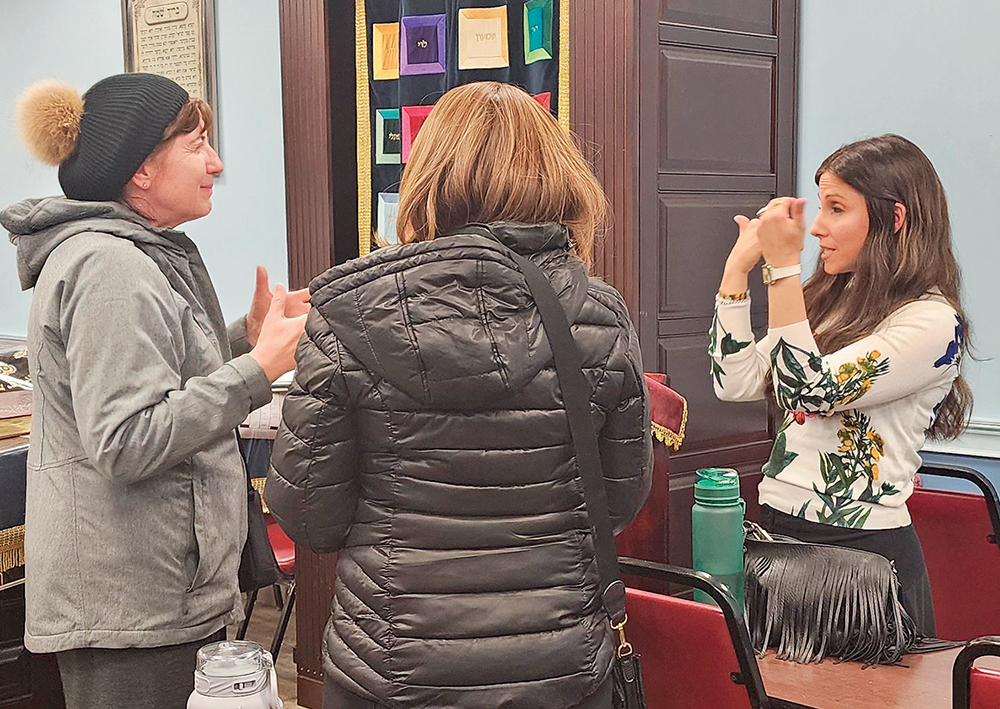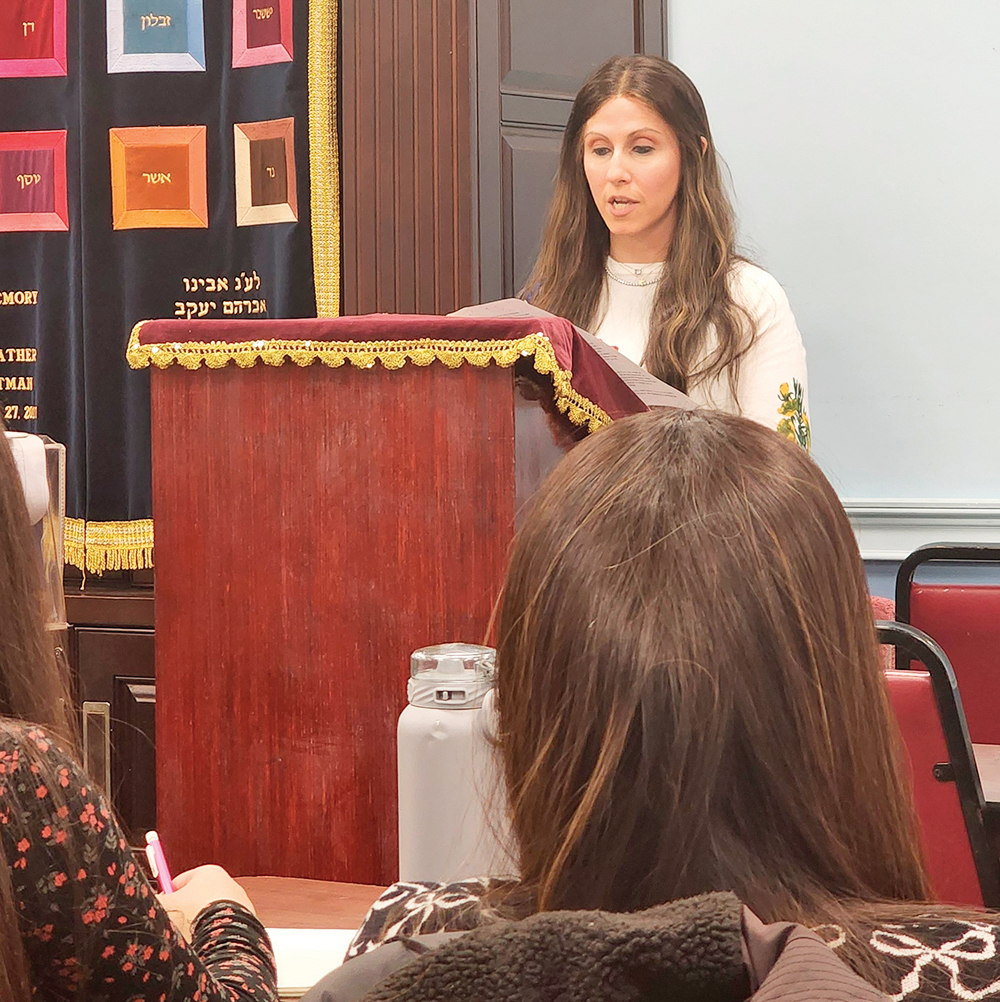
Who were the righteous women who enabled the Israelites to leave Egypt?
Nearly two dozen women from the Highland Park/Edison community gathered at Congregation Ohr Torah (OT) in Edison Saturday evening, March 22, to find out. Kallah teacher, mentor and popular local speaker Ahuva Morris presented an interesting, fast-paced, and timely inspirational shiur, “Nashim Tzidkaniyos: Who Were They and Can I Be One Too?” where she explored different ways women today can find internal strength in today’s times and how they might impact change.
Morris began with engaging the audience in the imagery of the Passover Seder, where the leader reads the Haggadah and retells the story of the exodus of the Jewish people from Egypt. While each person is required to internalize the redemption and freedom from slavery, “It is easy for women to understand the feeling of being in Egypt, it isn’t as easy to feel the geulah (redemption) when we are overworked with external employment, family care, and cooking, cleaning and preparing for Passover. Morris continued, “Women are especially obligated to feel the exodus” as it was in their merit of these courageous, brave and strong women who defied Pharaoh’s decree and encouraged continued Jewish family growth.”
The Torah uses the word vayiven to describe when Hashem created the first woman. An interesting use of a word with a root describing “to build” rather than a word “to create.” She said, “It is part of a woman’s essence to build a home, which is the source location of the ultimate kindness.” Morris noted that the nation was called “Beit Yisrael” as the Israelites were leaving Egypt, another clue as to the importance of the home in the redemption as well as in today’s world.
Morris also reflected that shalom bayit is the core of the Jewish nation, adding that both Rabbi Yissocher Frand and Jamie Geller note this fact as the source and merit of the redemption from Egypt. An interesting note, “After Oct. 7, women in Israel gravitated to the mikvah and began relearning and enhancing the relationships within their home, seeing that those relationships are critical to understanding themselves and understanding their relationships with Hashem.”

Continuing, she said that although women try to suppress bad events and difficult circumstances, the painful experiences can be beneficial for personal growth. The pain is there, one may not be able to change it, but every woman can change the perspective of how it is perceived and can control how she handles the context and the actions that need to be taken.
With a reference to the movie “The Lion King,” Morris noted how Simba was able to transform his own reflection in the water to that of his late father, the former king. When one sees ourselves as being able to enact change, one creates the power to do so. When people change their perspective to one of positivity, they are motivated to act. “The power for change lies within ourselves. In the Torah, Moshe Rabbeinu is told that the ground he is standing on is holy, referring to the fact that wherever he is, Moshe would have the power to make an impact. Women today can make the changes and have an impact as well.”
Morris then provided three recommendations on how to create the internal shifts and changes that can create great outcomes.
- Think beyond the obvious. In an extension of “giving the benefit of the doubt,” think about the root source of events that are happening. An example was given: If your child is sick on Friday afternoon and throws up on the floor you’ve just washed for Shabbat, don’t focus on the mess on the floor and yell at the child. Focus instead on the fact that there is a sick child who doesn’t feel well and could use a hug and some comforting words. The bottom line is that the situation hasn’t changed, but your perspective has.
- Feel things and face the pain; be able to shift your outlook. Be aware of what is going on, deal with pain at appropriate times, but also be compassionate with ourselves and allow ourselves to move on.
- Do something! Being proactive and doing something will help shift one’s perspective to the positive. The women leaving Egypt took musical instruments with them as a reinforcement of a positive attitude toward what would otherwise could be a frightening challenge. They chose to focus on positive actions. “Everyone has their own measuring stick that they are measured against. It isn’t the same height level for every person. What if I take my measuring stick and use it as a staff, as Moshe did, for leadership?” asked Morris.
Morris concluded by saying that we say “Amen,” that something should be true. The root of that is “em” — mother. Women are the ambassadors for truth in their families, communities and the world. “We should find the strength to make the changes in ourselves, our relationships and how we view events. Tap into yourselves and inspire change for personal and overall geulah.”
The idea for this presentation was presented to OT’s Rabbi Sariel Malitzky by Morris as an expansion of her other community activities. “I love to keep teaching and sharing. There are other ideas and concepts I’d like to explore in depth.” Women and post-high school age girls: definitely plan to attend if you see announcements about further presentations by Morris.
Deborah Melman is a staff writer at The Jewish Link.









